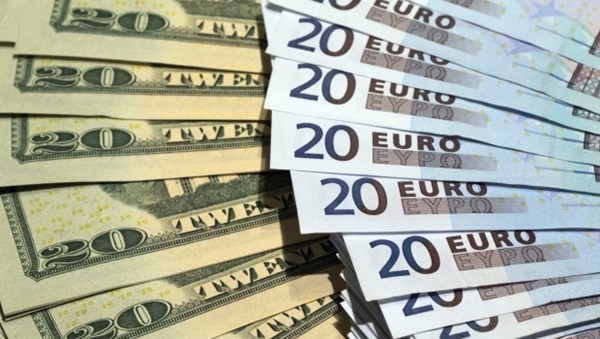Corporate clients withdraw $10 billion from Russian banks
For the second consecutive month, the Russian banking sector has experienced an outflow of foreign currency from the accounts of major corporate clients, who are rapidly spending or withdrawing the dollars and euros, reports finanz.ru.
In July, legal entities withdrew another $900 million from current accounts and emptied a similar amount from foreign currency deposits. A month earlier, the outflow was a three-year record: $4.4 billion flowed out of deposits and $3.6 billion from current accounts.
Overall, since the start of summer, the Russian banking system has lost $9.8 billion from the accounts of major businesses, and the total “foreign currency cushion” of corporations has dropped to a low since 2012 – $146.3 billion, according to the Bank of Russia’s statistics.
In order to pay for the most recent outflow, banks have used $1.3 billion of their own reserves that had accumulated in foreign accounts in the first half of the year, observes Raiffeisen Bank analyst Denis Poryvay.
The remainder was covered using funds belonging to physical entities, who brought another $500 million to the banks. On August 1, the population’s total foreign currency deposits in the banks equaled the all time record of $96.6 billion.
Corporations needed the foreign currency in order to pay dividends. Between May and August, the largest companies paid shareholders $30.1 billion, of which exporters accounted for 70%.
Just like in 2017-2018, the payments could not be covered using the current cash flow. Gazprom was faced with a sharp decline in gas prices in Europe and a drastic decline in its export volumes to there. Rosneft was severely affected by the situation surrounding the Druzhba pipeline, and had barely enough operating cash flow in the second quarter ($6.95 billion) to pay for all its capital investments ($6.56 billion). Both Rusal and Alrosa complained of demand problems due to trade wars.
Despite the major outflow of client funds, banks do not want to part with their own foreign currency cushions, despite the fact that the strengthening ruble is causing many of them losses: In the first half of the year, VTB lost $1.38 billion on foreign currency investments and Alfa-Bank lost $103 million.
At the end of July, the banks had a $18.5 billion reserve in the form of liquid foreign currency assets, Poryvay estimates. This is the amount by which their own cash reserves in offshore accounts exceed what their clients have in current accounts.
In a month, the banks used up only $300 million of this reserve, which is the primary factor preventing the ruble from weakening significantly, says Poryvay.
“As liquidity is exhausted over 3-4 months, that is, by the end of the year, the ruble is very likely to weaken, and the cost of foreign currency liquidity will rise,” the expert adds.
